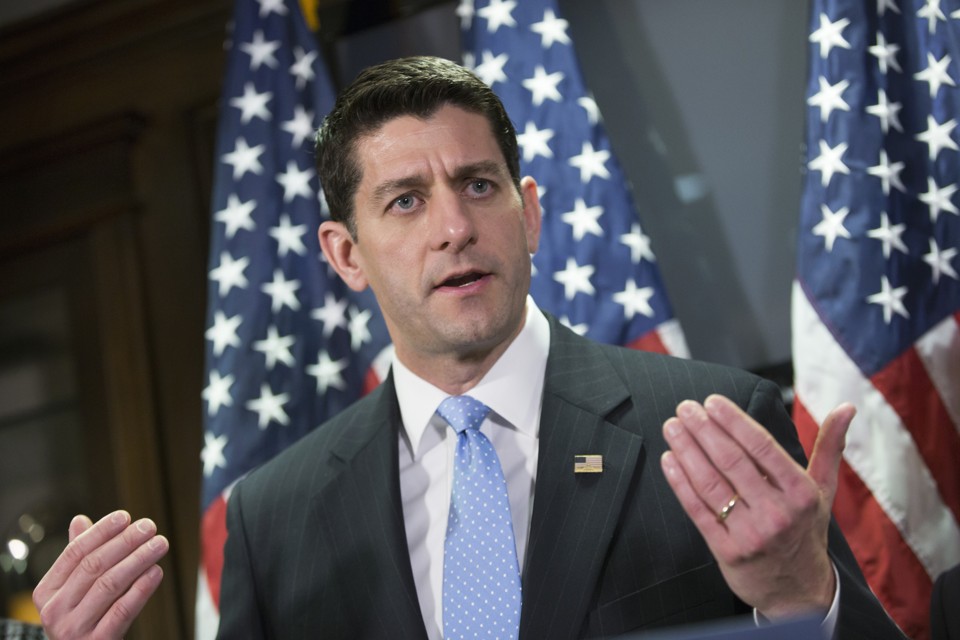Jim Carnes: Expanding Medicaid would improve Alabama’s health, budgets and economy

Imagine being an Alabama leader and having a tool at your disposal that could help families, strengthen the workforce, save rural hospitals, fight opioid addiction, improve the state’s health status and grow the economy. The only catch: It was created by members of another political party. That’s the dilemma that has kept Alabama from expanding Medicaid for the last eight years. We’re a different country now than we were in 2010, when a Democratic Congress passed and President Barack Obama signed the Affordable Care Act (ACA), making Medicaid expansion possible. With so much water under the bridge – and the ACA still standing – maybe it’s time to seize one of the law’s more durable provisions and take credit for the good it brings. A new Urban Institute study offers a fresh look at just how much Alabama stands to gain from closing the coverage gap for low-income adults. The ACA created two major new avenues for affordable health coverage. First, states would raise their income limits on Medicaid to make coverage available to adults earning up to 138 percent of the federal poverty level ($28,676 a year for a family of three). And second, the Health Insurance Marketplace would offer discounted premiums for private coverage to people with incomes above the poverty level ($20,780 for a family of three). With expansion, each state would be responsible for a small fraction of associated costs, topping out at 10 percent in 2020, with the federal government paying the rest. Even after a 2012 U.S. Supreme Court ruling declared that Medicaid expansion was optional for states, 31 states and the District of Columbia seized the opportunity to improve lives, improve communities and improve their budgets for a dime on the dollar. But Alabama and 18 others have stayed behind. Hundreds of thousands of uninsured Alabama workers are paying the price for that inaction. Under the state’s current rules, adults under age 65 and without a disability can receive Medicaid coverage only if they have a dependent child and earn less than 18 percent of the poverty level ($3,744 a year for a family of three). In other words, it’s impossible to work a minimum-wage job and receive Medicaid in Alabama. The flip side of this predicament is that coverage remains unaffordable for low-wage Alabama workers who don’t have employer health plans and don’t earn enough to qualify for Marketplace subsidies. This coverage gap is exactly the problem Medicaid expansion is designed to solve. The new Urban Institute report estimates that 314,000 Alabamians would enroll in Medicaid if Alabama extended eligibility to low-income workers. That would mean an additional $1.54 billion in federal funding surging into Alabama’s economy each year under the 9-to-1 federal match rate. It also would mean rural hospitals – like the one in Jacksonville that announced in May that it plans to close – would no longer be bleeding red ink through services to uninsured patients. Expanding Medicaid would strengthen our state’s budgets as well. Expansion would increase Alabama’s Medicaid enrollment by 33.8 percent, but the increase in state costs would be just 5.7 percent, according to the Urban Institute. That translates to $97 million more in state Medicaid funding each year. That increase would be more than offset by savings in mental health care, corrections and other services – not to mention the gains from fewer uncontrolled chronic illnesses, fewer premature births and improved worker productivity. A 2017 report in Health Affairs found “no significant increases in spending from state funds as a result of the expansion” in any of the states that expanded Medicaid. For Montana – which has less than a quarter of Alabama’s population – another study identified between $350 million and $400 million in new economic activity resulting from Medicaid expansion, supporting 5,000 jobs and $280 million in personal income each year. In any other industry, the prospect of such gains would have political candidates of all stripes blowing trumpets and leading parades. And those other economic development plans wouldn’t have the added advantage that this one brings: giving people a new lease on life by helping them get the health care they need. Isn’t it time we broke the partisan gridlock on the coverage gap? Isn’t it time we demanded that anyone seeking to lead our state offer a vision of a healthier Alabama – and a path to getting there? ••• Jim Carnes is policy director of Alabama Arise, a nonprofit, nonpartisan coalition of congregations, organizations and individuals promoting public policies to improve the lives of low-income Alabamians. Email: jim@alarise.org.
SPLC claims Medicaid work requirements have disparate impact on communities of color

In January, Gov. Kay Ivey and state Medicaid officials revealed a plan for Alabama to become the newest state to institute a work requirement for some Medicaid recipients. Ivey’s office announced in March, that the Yellowhammer State would formally be seeking permission from the federal government to make that change to its Medicaid program. Ivey’s administration and Alabama Medicaid believe the changes will put Alabamians on a path to better health outcomes, but Sam Brooke, deputy legal director for the Southern Poverty Law Center (SPLC), disagrees. “We have long known that subjecting Medicaid recipients to bureaucratic hurdles like work requirements will force them off the rolls, and that those forced to work who aren’t able will assuredly see their health decline,” he said. “We are now seeing that, in an effort to mitigate these harms in rural, predominantly white counties where few jobs are offered, the government will make an exception. This is particularly problematic because the unemployment rate in urban centers is often just as bad or worse, but it is masked by the use of county-wide data that includes much better off and affluent white neighborhoods.” Brooke believes the work requirements will disadvantage communities of color, in the crossfire of “welfare reform.” “These changes are not reform,” said Brooke. “They are benefit cuts intended to save dollars by kicking off people of color who are deemed ‘undeserving’ by criteria that are neither fair nor objective. We’ve seen this before. We don’t need to make this mistake again.” Ivey’s proposal would only apply to “able-bodied” Parent or Caretaker Relative (POCR) recipients — with exemptions being made for people with disabilities, anyone who pregnant or receiving post-partum care, anyone required to care for a disabled child or adult, among others — that will require unemployed or underemployed adults to become gainfully employed, or participate in training opportunities to enhance their potential for full employment. Several other Republican majority states are seeking similar Medicaid work waivers, with Kentucky being the first state to move forward with the work requirements, which the Trump administration approved in January.
Walt Maddox unveils plan to tackle Alabama’s growing opioid crisis

Tuscaloosa mayor and Democratic gubernatorial candidate Walt Maddox on Monday unveiled his plan to tackle growing Alabama’s opioid epidemic. “Like most states, Alabama has been hit hard with opioid abuse and addiction. Indeed, our state has the highest rate of prescription opioid use in the nation, and it’s well established that legitimate use of opioid medication is a leading cause of illicit opioid abuse. But opioids aren’t our only drug problem,” explained Maddox. In an effort to get to the root of the problem, Maddox will separate substance abuse out from under the Department of Mental Health and create a cabinet level officer who answers directly to the Governor “in the battle to save our state from the ravages of illegal drug use while continuing to coordinate drug policy with mental health resources so that underlying causes of addiction are addressed.” He also reiterated the need to expand Medicaid to tackle the opioid epidemic. “The expansion will increase the availability of and access to treatment and counseling that we so desperately need. We also need to improve prescription drug monitoring and make medical treatments more widely available, like Soboxone, which alleviates the pain of opioid withdrawal but is too expensive for most to afford without assistance,” Maddox said in a statement He continued, “The opioid epidemic is also a time for society to look inward and reflect on how our past reaction to problems, like the crack cocaine scourge of two or three decades ago that disproportionately affected African American communities, was to enhance law enforcement and criminal penalties.” “The ‘war on drugs’ was never an effective strategy to treat substance abuse. Today we see a more compassionate, treatment-based approach to fighting opioids, which are devastating white and black communities alike. It’s terrible that it takes a growing tragedy in white communities to help us see the truth of what’s been happening in all our communities for many years, but the fact is that substance abuse has always been first and foremost a public health problem that cannot be solved by the criminal justice system alone. We’ve not always treated it that way, and that must change.”
Walt Maddox announces health care plan including Medicaid expansion, work requirement

With escalating premiums and deductibles continuing to plague many Alabamians, health care continues to be a hot topic across the Yellowhammer State, which is why Tuscaloosa Mayor and Democratic gubernatorial candidate Walt Maddox on Tuesday announced a health care plan he would implement if elected Governor. “As Governor, I will immediately move to expand Medicaid, accepting the offer of federal funds for pennies on the dollar, free money that Alabama has inexplicably and inexcusably refused,” explained Maddox on his website. “These billions of additional dollars will have multiple short and long-term benefits that will save our rural hospitals from further devastating closures and hopefully allow some that have already closed to reopen; provide more and better services to children, the elderly, the disabled, and hardworking people who cannot afford health insurance; act as an economic stimulus by creating new, high paying jobs, both in traditional healthcare and in the development of new medical technologies that benefit everyone; and allow Alabama to take a major step up from the bottom of the nationwide health rankings, where we currently come in at an embarrassing 47th overall.” Work requirement Maddox’s plan aims to put to bed the “bogus objection” made by those who say “Medicaid equates to government handouts to able-bodied people who won’t work,” by including a work requirement for those individuals who are capable either have a job or work to find a job “A work requirement certainly is not feared by those potential Medicaid recipients who already have jobs but do not have employer provided health insurance and who cannot afford insurance because their paychecks are already stretched to pay for food, shelter, and other more immediate needs,” explained Maddox. He contends doing so would provide new coverage to almost 200,000 Alabama citizens who cannot afford health insurance. Rural hospitals Maddox believes the expansion of Medicaid will save Alabama’s rural hospitals. “The closure of so many of these essential medical centers over the past several years is increasingly denying health care access to rural Alabama,” said Maddox “This is a concern not only to people who live in these communities – it should be of equal concern to families who travel through any of the 55 rural Alabama counties and may need emergency services, or who consume food and other products from Alabama’s strong agricultural industry.” He continued, “The hospital closures kill jobs, which strains the economic engine of the entire state. Rural hospitals are a top five employer in most rural counties of Alabama, and when we say no to Medicaid expansion we are saying no to jobs and continued healthcare access to anyone who lives or travels through rural Alabama.” Improved telemedicine Maddox also makes a case for improving telemedicine — a relatively new concept that seeks to improve a patient’s health by permitting two-way, real time interactive communication between the patient, and the physician or practitioner at the distant site — use and availability, which he believes will allow specialists in advanced medical centers to treat patients anywhere in the state. “This will enable rural hospitals to partner with larger, urban institutions and facilitate their transition to acute care facilities without closing them,” explained Maddox. “Expanded use of nurse practitioners and other mid-level providers further will fill gaps in our medical services.” “Alabama’s current medical model is morally unacceptable and economically unsustainable. To paraphrase a famous scientist, we keep gazing at our feet when we should be looking to the stars. There’s no limit to our state’s potential, and a healthier Alabama is an essential first step,” Maddox concluded.
Alabama seeks work requirement for some able-bodied Medicaid recipients

Unemployment has been shown to have a negative impact on physical and mental health outcomes. Which is why in January, Gov. Kay Ivey and state Medicaid officials revealed the plan become the newest state to institute a work requirement for some Medicaid recipients. On Thursday, that plan took a step forward when Ivey’s office announced the state will formally seek permission from the federal government to make that change to its Medicaid program. The proposal would only apple to “able-bodied” Parent or Caretaker Relative (POCR) recipients — with exemptions being made for people with disabilities, anyone who pregnant or receiving post-partum care, anyone required to care for a disabled child or adult, among others — that will require unemployed or underemployed adults to become gainfully employed, or participate in training opportunities to enhance their potential for full employment. Alabama Medicaid believes this change will put Alabamians on a path to better health outcomes. According to the proposal, proposed work requirement would impact nearly 74,000 of the state’s 1 million Medicaid recipients. As required by federal regulation, Medicaid is now opening a formal 30 day comment period. A copy of the draft Demonstration proposal will also be available upon request for public review at each county office of the Department of Human Resources and the State Office of the Alabama Medicaid Agency. Additionally, two opportunities for public comment will be held at the following locations: March 5, 2018 at 11:00 a.m. Alabama Industrial Development and Training (AIDT) Auditorium One Technology Court Montgomery, Ala. 36116 March 6, 2018 at 11:00 a.m. Hoover Public Library 200 Municipal Drive Hoover, Ala. 35216 Critics contend the work requirements are based on falsehoods and vilify those who are on Medicaid. “We will not improve the health of people in our state, nor will we improve the state’s economy, by forcing people to work when they are not healthy,” said Samuel Brooke, Deputy Legal Director, Economic Justice Project at the Southern Poverty Law Center (SPLC). “This proposal would unnecessarily increase the burdens of the working poor, and end up costing the state more money by cutting people from the Medicaid rolls and forcing them and their families to use emergency rooms – subsidized by taxpayers – for routine health services.”
Legislative session weekly wrap-up: Budget introduction, Medicaid work reqs, ridesharing on the move

Alabama lawmakers faced cold weather and icy roads this week as they made their way to the State House where they managed to move a handful of bills in both chambers. The Legislature has now used four of its available 30 meeting days for the 2018 Regular Session, and only 26 meeting days remain. Here are the highlights out of Montgomery this week: In the Governor’s office: Some Medicaid recipients in Alabama may be required to work. As part of her General Fund Budget proposal, Ivey instructed Alabama’s Medicaid Commissioner Stephanie Azar to develop a policy for implementing a work requirement for Medicaid receivers. All work requirements would only be applicable to “able-bodied” adults, with exemptions being made for the elderly, people with disabilities, and children. Ivey’s current plan would also require copay increases for Medicaid recipients. Her goal is to “increase efficiency and decrease costs related to Medicaid, all in an effort to be good stewards of taxpayer dollars.” Alabama’s jobless rate holds steady at record 3.5 percent low. Ivey announced on Friday that 2,093,063 people were counted as employed in December, the most ever recorded. Alabama’s preliminary, seasonally adjusted December unemployment rate is 3.5%, maintaining last month’s record rate. The new figures also indicate the Yellowhammer State is ahead of the national employment average as the U.S. jobless rate is holding at 4.1 percent. Senate news: Tripp Pittman introduces Kay Ivey’s General Fund budget. SB178, otherwise known as the proposed budget, appropriates funds for functions of government, debt service, and capital outlay for fiscal year ending September 30, 2019. According to the Governor’s office, it does so “sensibly” and “funds state government with prudence and care.” Bill to remove marriage licenses passes. The Alabama Senate approved a bill on Wednesday to remove marriage licenses and begin a new process under which probate judges would accept affidavits from couples as an official record of marriage. Under the legislation, the requirement of a ceremony to honor the marriage would be erased. The cost would be the same as the current cost of marriage licenses in the state. Bill introduced to increase penalties for human trafficking. Introduced on Tuesday, the bill would enhance the criminal penalties for obstructing the enforcement of the human trafficking laws in Alabama. Ridesharing bill on the move. The bill, which passed the Senate Tourism and Marketing Committee on Thursday, would create a ridesharing network across the state for companies and place it under the control of the Alabama Public Service Commission (PSC). A single permit issued by the PSC would then allow the companies to operate statewide under uniform regulations rather than requiring each municipality to file for their own permits and regulations. House news: Legislation proposed to scrap partisan primaries. One Alabama lawmaker wants to scrap partisan primaries in favor of open elections that would send the two top vote-getters, regardless of party affiliation, on to the general election, thus eliminating the need for run-off elections. Of special note: State Representative George Bandy dies at 72. Longtime Alabama lawmaker, State Representative George Bandy Sr. died early Tuesday morning in a Macon, Ga., hospital, according to Alabama House spokesman Clay Redden.
Some Medicaid recipients in Alabama may be required to work

According to Gov. Kay Ivey and state Medicaid officials, Alabama is hoping to become the newest state to institute a work requirement for some Medicaid recipients. As part of her General Fund Budget proposal, Ivey instructed Alabama’s Medicaid Commissioner Stephanie Azar to develop a policy for implementing a work requirement for Medicaid receivers. All work requirements would only be applicable to “able-bodied” adults, with exemptions being made for the elderly, people with disabilities, and children. Ivey’s current plan would also require copay increases for Medicaid recipients. Her goal is to “increase efficiency and decrease costs related to Medicaid, all in an effort to be good stewards of taxpayer dollars…I look forward to future implementation of those policies.” This proposal comes after President Donald Trump‘s Administration sent a letter to all state Medicaid directors notifying them that they would allow states to impose work requirements on non-disabled working age Medicaid recipients. However, a work requirement is not the only option suggested by the Trump Administration. Recipients may also volunteer, attend a school or enter a work training program. Earlier in January, Bryant-Republican State Rep. Tommy Hanes pre-filed HB6, which would also require able-bodied adults who are recipients of the Supplemental Nutrition Assistance Program (SNAP) , formerly known as food stamps, to participate in a work requirement with similar guidelines to the proposed medicaid work requirements. According to the Lagniappe; “Alabama’s Medicaid costs took up one-third of the current General Fund budget, and the program is routinely the most expensive item lawmakers have to fund…despite that, a recent report from the Medicaid and CHIP Payment and Access Commission found Alabama already runs the leanest program of any state based on the average medical benefit received by its enrollees.” Alabama has approximately 1.043 million Medicaid recipients, with over half of recipients being children, and only 18 percent being non-disabled adults. Several other Republican majority states are seeking similar Medicaid work waivers, with Kentucky being the first state to move forward with the work requirements.
Tripp Pittman introduces Kay Ivey’s General Fund budget in Ala. Senate

On Tuesday, Montrose-Republican and Finance and Taxation General Fund Chairman, State Sen. Trip Pittman introduced Governor Kay Ivey’s proposed General Fund budget in the Senate. SB178, otherwise known as the proposed budget, appropriates funds for functions of government, debt service, and capital outlay for fiscal year ending September 30, 2019. According to the Governor’s office, the it does so “sensibly” and “funds state government with prudence and care.” Ivey applauded Pittman’s introduction of the budget. “I am pleased to learn that my budget was introduced today by Senator Pittman,” Ivey said. “My proposed budget is a strong, manageable budget, and is highlighted by the bright spot of a lower than expected Medicaid appropriation. Improving Medicaid delivery and controlling costs is central to my budget; that is why I instructed Commissioner Stephanie Azar in October 2017, to begin working on implementing work requirements and increased copays for Medicaid recipients. That process has been ongoing, and I look forward to future implementation of those policies.” Recent changes by the Trump Administration, have enabled states, like Alabama, to seek Medicaid work requirements. After instructing Commissioner Azar to implement work requirements and increased copays for applicable Medicaid recipients, the governor notified Pittman of the new policies shortly thereafter. The governor’s instructions are aimed at continuing to increase efficiency and decrease costs related to Medicaid, all in an effort to be good stewards of taxpayer dollars. “Since my meeting with Governor Ivey in October, we have been working hard to prepare for this change and ensure our recipients will continue to receive an adequate level of care,” said Commissioner Azar. “Last week, during my testimony to the General Fund Budget Committee, I illustrated how the work requirements and the copay increases will benefit the Alabama Medicaid Agency. Thanks to the improved economy and continued efforts to seek efficiency and decrease cost in the program, Medicaid is requesting less money than expected. We are certainly moving in the right direction to take care of the Alabamians that depend on our services.” The General Fund Budget is expected to start making its way through the legislative process, beginning in the Senate Committee on Finance and Taxation General Fund this week.
House GOP eyes budget passage that is key to tax debate

Republicans are focused on cutting taxes instead of deficits as they look to power a $4.1 billion budget plan through the House on Thursday. The 2018 House GOP budget promises deep cuts to social programs and Cabinet agency budgets but its chief purpose is to set the stage for action later this year on a comprehensive Republican overhaul of the U.S. tax code. The tax overhaul is the party’s top political priority as well as a longtime policy dream of key leaders like Speaker Paul Ryan. The plan calls for more than $5 trillion in spending cuts over the coming decade, including a plan to turn Medicare into a voucher-like program for future retirees, slash Medicaid by about $1 trillion over the coming decade, and repeal the “Obamacare” health law. But Republicans are not actually planning to impose any of those cuts with follow-up legislation that would be required under Washington’s byzantine budget rules. Instead, those GOP proposals for spending cuts are limited to nonbinding promises, and even a token 10-year, $200 billion spending cut package demanded by tea party House Republicans appears likely to be scrapped in upcoming talks with the Senate. Instead, the motivating force behind the budget measures is the Republicans’ party-defining drive to cut corporate and individual tax rates and rid the tax code of loopholes. They promise this tax “reform” measure will put the economy in overdrive, driving economic growth to the 3 percent range, and adding a surge of new tax revenues that would help bring the budget toward balance. Passing the measure through the House and Senate would provide key procedural help for the tax measure because it sets the stage for follow-on legislation that can’t be filibustered by Senate Democrats. Republicans used this so-called reconciliation procedure in their failed attempt to kill “Obamacare,” including its tax surcharges on wealthy people. “Through reconciliation, our budget specifically paves the way for pro-growth tax reform that will reduce taxes for middle class Americans and free up American businesses to grow and hire,” said House Budget Committee Chairman Diane Black, R-Tenn. The House vote comes as the Senate Budget Committee is considering a companion plan that differs in key details and is set for a vote Thursday afternoon. Both the House and Senate plans rely on rosy estimates of economic growth and illusory spending cuts to promise to wrestle the federal budget back into surplus within a decade. The House measure also assumes that the upcoming tax bill won’t add to the deficit; the Senate version, however, would permit the measure to add $1.5 trillion to the $20 trillion-plus national debt over the coming 10 years. The final version is likely to stick closely to the Senate measure. The real-world trajectory of Washington, however, is for higher deficits as Republicans focus on tax cuts, a huge hike in the defense budget, and a growing disaster aid tally that is about to hit $45 billion. “The train’s left the station, and if you’re a budget hawk you were left at the station,” said Rep. Mark Sanford, R-S.C. Democrats blasted the sweeping spending cuts proposed by Republicans – $5.4 trillion over 10 years in the House plan and somewhat less in the Senate GOP measure – as an assault on middle-class families and the poor. “This is, like Yogi Berra said, ‘deja vu all over again.’ Republicans used their Trumpcare bill to sneak in tax cuts for the rich,” said Senate Minority Leader Chuck Schumer, D-N.Y. “Now they’re using their tax cut plan … and they’re sneaking in cuts to Medicaid and Medicare. But it’s the same playbook.” Republished with permission from the Associated Press.
Alabama’s rate of uninsured children plunged to 2.4 percent in 2016

Things are looking up for children in Alabama. According to new U.S. Census data released this week, nearly 49 of every 50 children in the Yellowhammer State had health coverage in 2016. The rate of uninsured children to dropped to 2.4 percent, from 2015’s 3.1 percent — far below below the national average. A huge piece of the credit for those recent coverage gains belongs to Medicaid and ALL Kids, Arise Citizens’ Policy Project executive director Kimble Forrister said Thursday. Combined the programs cover nearly 800,000 Alabama children who live in households with low or moderate incomes. “All children deserve consistent, appropriate health care, and Alabama does a good job of helping them get it,” said Forrister. “Medicaid and ALL Kids help kids stay healthy so they can learn, play and thrive. It’s essential to ensure these programs have the funding they need to continue providing health coverage for our most vulnerable residents.” The new figures are particularly incredible for the state’s children considering nearly one in four kids, 24.3 percent, in the state lived in poverty in 2016. Congress is currently set to debate federal funding for the Children’s Health Insurance Program (CHIP), which is known as the ALL Kids in Alabama, as it is set to expire Sept. 30 unless it is renewed. “Children’s health care is too important to be left up to chance,” Forrister added. “We urge Congress to protect Medicaid and ALL Kids and work together in a bipartisan way to make health care more accessible and more affordable for all Americans.”
5 reasons why health care bill would fail, 3 why it may not

There are many reasons why the Senate will probably reject Republicans’ crowning bill razing much of former President Barack Obama‘s health care law. There are fewer why Senate Majority Leader Mitch McConnell might revive it and avert a GOP humiliation. Leaders say the Senate will vote Tuesday on their health care legislation. They’ve postponed votes twice because too many Republicans were poised to vote no. That could happen again. The latest bill by McConnell, R-Ky. – and it could change anew – would end penalties Democrat Obama’s health care law slapped on people without insurance, and on larger companies not offering coverage to workers. It would erase requirements that insurers cover specified medical services, cut the Medicaid health insurance program for the poor and shrink subsidies for many consumers. — IT FAILS: AWFUL POLL NUMBERS In an Associated Press-NORC Center for Public Affairs Research poll this month, 51 percent supported Obama’s statute while just 22 percent backed GOP legislation. Perhaps more ominously for Republicans, the AP-NORC poll found that by a 25-percentage-point margin, most think it’s the federal government’s responsibility to ensure all Americans have coverage. That’s a growing view – there was just a 5-percentage-point gap in March. It underscores a harsh reality for the GOP: It’s hard to strip benefits from voters. — AWFUL CBO NUMBERS The nonpartisan Congressional Budget Office says under McConnell’s plan, 22 million more people would be uninsured by 2026, mostly Medicaid recipients and people buying private policies. For single people, the typical deductible – out-of-pocket expenses before insurance defrays costs – would balloon that year to $13,000, up from $5,000 under Obama’s law. Note to the entire House and one-third of the Senate, which face re-election in 2018: 15 million would become uninsured next year. And though CBO says average premiums should fall in 2020, they’ll head up in 2018 and 2019. Oh, yes. The bill would let insurers charge people approaching retirement age higher prices than they can now, boosting premiums “for most older people,” CBO says. Older people like to vote. — AWFUL SENATE NUMBERS With a 52-48 GOP majority, the bill would survive if no more than two Republicans oppose it. With the indefinite absence of the cancer-stricken Sen. John McCain, R-Ariz., McConnell’s margin of error shrinks to one. At least a dozen senators have expressed opposition to the legislation or been noncommittal. Lawmakers and aides say others haven’t publicly surfaced. Moderate senators from states with vast Medicaid populations want to protect those voters. Conservatives consider it their mission to eliminate the law they’ve campaigned on abolishing for years. These aren’t easily resolved disputes. — PRESIDENTIAL DRAG President Donald Trump wants “Obamacare” repealed. He also has public approval ratings below 40 percent – Bad! – and a propensity for turning on people. Just ask House Speaker Paul Ryan, R-Wis., and Attorney General Jeff Sessions. After Ryan labored for months before the House approved its health care bill and earned a Rose Garden celebration, Trump called the measure “mean.” Trump said he wouldn’t have picked Sessions for his job had he known he’d recuse himself from investigations into Russian meddling in last year’s campaign. Some lawmakers might not be blamed for declining to carry Trump’s water. Trump expressed frustration with Republicans Sunday on Twitter. He said: “It’s very sad that Republicans, even some that were carried over the line on my back, do very little to protect their President.” While he didn’t directly say why he was upset with GOP lawmakers, Trump’s tweet came as lawmakers are struggling to reach agreement on health care. — LEMONS INTO LEMONADE The bill’s rejection would still let lawmakers cast votes showing their positions. Supporters could say they honored their repeal “Obamacare” pledges, foes could say they protected their states or adhered to conservative principles. Defeat would let the Senate refocus on tax cuts or other initiatives, though it’s unclear what major issues don’t divide Republicans. A loss means there won’t be a GOP law voters might blame for health care problems they encounter. Though Republicans may already own the issue in the public’s eye, since they run the government. — IT PASSES: THE UNTHINKABLE This isn’t happening, right? Republicans have run on repealing “Obamacare” for years. The administration won’t let the effort fail without a fight. Trump lunched with senators at the White House last week and tweeted that Republicans “MUST keep their promise to America!” On Friday, Vice President Mike Pence urged leaders of conservative, anti-abortion and business groups to pressure senators. Medicaid administrator Seema Verma has tried luring senators unhappy with Medicaid cuts, including Ohio’s Rob Portman and West Virginia’s Shelley Moore Capito, with more flexibility for governors to use Medicaid funds to help pay expenses for beneficiaries shifting to private insurance. — MCCONNELL The health bill’s floundering has tarnished McConnell’s reputation as a legislative mastermind. Many Republicans privately say if the votes were gettable, he’d have gotten them already. But the 33-year Senate veteran is wily and doesn’t want his record stained with this failure. He understands what GOP senators need and has time, and if anyone can rescue the legislation, it’s him. — TRUMP FACTOR GOP senators cross Trump at their own peril. Eight in 10 Republicans still rate him favorably. In the 2018 midterm elections, when turnout is traditionally down, those loyal voters could make a difference. Republished with permission of The Associated Press.
Promise, promises: What Donald Trump has pledged on health care

President Donald Trump is not known for plunging into the details of complex policy issues, and health care is no exception. Since his campaign days, Trump has addressed health care in broad, aspirational strokes. Nonetheless he made some clear promises along the way. Those promises come under two big headings. First, what Trump would do about the Affordable Care Act, his predecessor’s health care law, often called “Obamacare.” Second, the kind of health care system that Trump envisions for Americans. On repealing Obama’s law, Trump seems to have a realistic chance to deliver. But he’s nowhere close to fulfilling his generous promises of affordable health care for all. A look at some of the president’s major health care promises, and how the Republican legislation advancing in Congress lines up with them: REPEAL ‘OBAMACARE’ Repealing President Barack Obama‘s signature domestic achievement has been a clear and consistent promise from Trump. Under the Obama law, some 20 million people gained coverage through a combination of subsidized private insurance and a state option to expand Medicaid for low-income people. Costs have been a problem, as are shaky insurance markets for people buying their own policies. But the nation’s uninsured rate is at a historic low, about 9 percent. Both the House and Senate GOP bills would largely fulfill Trump’s promise to repeal Obama’s law. Both bills end Obama’s unpopular requirement for individuals to carry health insurance or risk fines. The legislation also phases down the Medicaid expansion and repeals hundreds of billions of dollars in taxes on upper-income people and health care industries, used under Obama to finance coverage. And it opens the way for states to seek waivers of federal health insurance requirements. Some Republican critics on the right say the congressional bills leave other major parts of “Obamacare” in place, such as subsidies for people buying private insurance, and too many rules. While the subsidy structure would remain, much less taxpayer money is invested in it. “INSURANCE FOR EVERYBODY” In a Washington Post interview before his inauguration, Trump distilled his vision for health care into a few visionary goals. “We’re going to have insurance for everybody,” he said. “There was a philosophy in some circles that if you can’t pay for it, you don’t get it. That’s not going to happen with us.” Trump said he was close to finishing a plan of his own that would have “lower numbers, much lower deductibles.” But the White House never delivered a health care plan from the president. And the congressional plans are likely to increase the number of uninsured people, because even if all Americans have access to coverage, some may no longer be able to afford it. Deductibles are likely to rise for many people with individual coverage because the congressional plans would end subsidies under Obama’s law that reduced out-of-pocket costs for those with modest incomes. The Congressional Budget Office has projected that, on average, premiums for individual policies would be lower over the long run than under current law. But there would be winners and losers. Younger adults and those in good health are likely to find better deals. Older people and those requiring comprehensive coverage could well end up paying more. TAKING AWAY THE LINES During the presidential campaign, Trump called for a system in which insurance plans would compete nationally, offering Americans choice and lower premiums. “What I’d like to see is a private system without the artificial lines around every state,” he said at one of the presidential debates. Many experts say Trump’s vision of interstate competition is unrealistic because health insurance, like real estate, reflects local prices. In any case, it remains unfulfilled in the GOP legislation. Some congressional leaders have promised that cross-state insurance will be addressed in follow-on legislation. Such a bill, however, would likely have to meet a 60-vote test in the Senate. PRESCRIPTION DRUG PRICES During the presidential campaign, and since becoming president, Trump called for action to bring down the cost of prescription drugs. The GOP bills in Congress basically sidestep that. At one point in the campaign, Trump called for giving Medicare the authority to directly negotiate prices with drug makers, an approach favored to some extent by Obama and Democratic presidential candidate Hillary Clinton. Trump also proposed letting Americans import prescription drugs from other countries, where prices are usually lower because of government regulation. But Medicare negotiations are a nonstarter for most congressional Republicans, and Trump’s call for allowing drug importation has faded. MEDICAID In a 2015 interview with The Daily Signal, Trump said: “I’m not going to cut Social Security like every other Republican and I’m not going to cut Medicare or Medicaid.” But last year, his campaign started backtracking on the Medicaid promise, endorsing the idea of limited federal financing for the federal-state program that covers some 70 million low-income people, from newborns to elderly nursing home residents, from special-needs kids to part-time workers lacking job-based health insurance. The Republican bills in Congress would phase out Obama’s financing for Medicaid expansion and limit future federal payments for the entire program as well. The Congressional Budget Office said the House bill would reduce federal Medicaid spending by $834 billion over 10 years, and the program would cover about 14 million fewer people by 2026, a 17 percent reduction. Several Republican governors have joined their Democratic counterparts calling that a massive cost-shift to the states. OPIOID CRISIS The Trump White House says it’s serious about confronting the nation’s opioid epidemic, which shows no sign of letup. “The president is all in,” health secretary Tom Price said on a recent visit to New Hampshire. “He has such passion for this issue because he knows the misery and the suffering that has occurred across this land.” But state officials say rolling back Obama’s Medicaid expansion would deal a heavy blow to their efforts to treat addiction and get its victims back to jobs and family. Among the group of low-income adults made eligible for Medicaid under Obama are many

